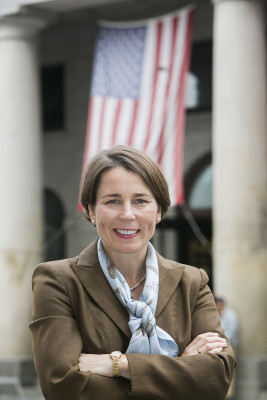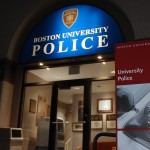
As the U.S. Supreme Court prepares for a ruling on affirmative action in college admissions, several Boston University students and faculty said they support the legislation and its contributions to diversity on campus.
Affirmative action has long been debated, but the looming decision on the matter has spurred heightened debate as to affirmative action’s effect on college campuses. On Monday, Massachusetts Attorney General Maura Healey and the Massachusetts Institute of Technology were among those to announce their support of the legislation.
“In order to achieve the many benefits of diversity in higher education, selective public colleges and universities need flexibility to craft workable admissions policies that will result in the enrollment of a student body that captures the many ways in which students can bring diversity to their schools, including racial diversity,” Healey stated in an amicus curiae brief Monday.
BU spokesman Colin Riley gave no word on BU’s stance on affirmative action, but said the university adheres to its own admissions process.
“Boston University uses a holistic admissions review process,” Riley said in an email. “That means we consider a wide variety of factors in reviewing admissions applications.”
The university’s Equal Opportunity and Affirmative Action Policy, adopted by BU’s Equal Opportunity Office in June 2015, outlines individual merit and other qualifications as the basis of equal opportunity on campus. The policy also expressed the university’s commitment to accept students without consideration to race, sex or creed.
Even though BU already stresses the idea of equal opportunity, Hardin Coleman, dean of BU’s School of Education, said affirmative action could help the university bring in a wider range of students.
“We have to make very conscious efforts to identify individuals who have the ability to succeed at BU, which is not a small set of skills,” Coleman said. “We’re really saying, ‘I understand that there are conditions that inhibit some people to look as successful as others, so I’m going to consciously think about how I can reach out to people who are skilled and confident, who don’t fit our traditional profile and make BU accessible.’”
Coleman said minority populations like African-Americans, Hispanics and Native Americans are more likely to come from an economically stressed situation, therefore have less of a chance for equal opportunity without affirmative action. Due to these situations, he said, finding the resources such as scholarship money and the support of others is an ideal option for private universities.
“We have to, as we engage in our capital campaign, be conscious about the role that scholarship money for underrepresented minorities play,” he said. “If we have an articulate commitment to affirmative action, it actually facilitates our ability to recruit money specifically to serve those ends.”
Coleman said he could not comment on BU’s stance on the legislation, but said he could speak as an educator and advocate for social justice in support of the issue.
“I know the advantage of diversity for BU, but I can’t speak for the institution,” Coleman said. “Beyond what I know, I don’t know how it would serve the case or the institution to make that type of stance. I think there are policies and procedures that we need to adopt, and as a dean and faculty member, I would advocate for [them].”
Sanjeev M, a freshman in the College of Communication, said if BU takes a stance on affirmative action, it could address the larger issue of diversity on campus.
“Having affirmative action would be a comfort thing and would be an acknowledgement of a larger problem,” he said. “For BU, it would acknowledge the problem and show that something needs to be done about it.”
M also said that BU gives off the impression that they would be in favor of a court appeal.
“I feel like BU is a very forward-looking university, at least since the last couple months that I’ve been here, that’s the sense that I get,” he said. “I think they know that this is something that they can make a difference in as much as possible, and I think they would want to be a part of that shift.”
Daniel Parino, a sophomore in the College of Arts and Sciences, said BU has made efforts toward diversity, but money complicates the issue of affirmative action.
“BU is a research institution so they always need money coming in to be able to fund their research,” Parino said. “I feel like at a certain point they give enough back to bring in some of the lower-income students, but at the same time they also want to take higher-income students to get money back for their research.”
Given the history of affirmative action, Parino said BU could be divided on the appeal of the issue.
“BU is a pretty liberal school so I feel like they’d want affirmative action in the sense that they can uplift other people,” Parino said. “But then I feel like they wouldn’t want it in the same way, because in order to fully liberalize you have to give everyone the same opportunities. It’s like a coin toss.”
Marissa Hedman, a freshman in CAS, shared similar sentiments.
“I can see them going both ways,” she said. “I can see BU doing it to try to appeal to people, and then not appealing because they don’t want to upset anybody.”
As for her personal thoughts on affirmative action, Hedman said it would be beneficial.
“Diversity is never bad,” she said. “It only benefits people.”




